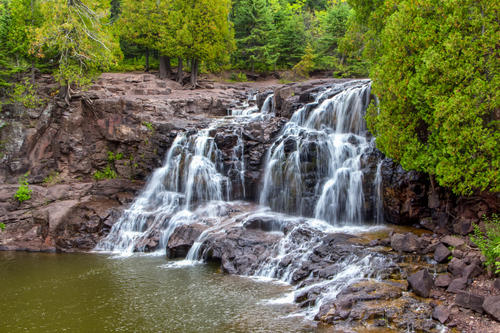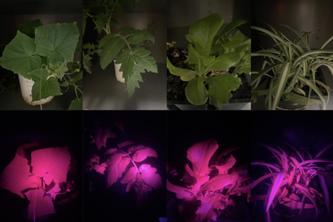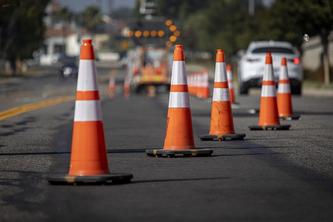
According to the U.S. Drought Monitor, over 40% of the United States is in a moderate or severe drought — which is expected to persist with little to no improvement. Locally, over 72% of Minnesota is in a severe drought, which means that crop yields are low, feed for cattle is expensive, fire danger is high, and river flow and well levels are low.
The University of Minnesota’s Jessica Hellmann discusses the need for people to understand the short- and-long term impacts of droughts and climate change on our agriculture industry, environment and everyday lives.
0:42 — This summer, Minnesota and the U.S. have experienced elongated drought and extreme weather due to climate change. How is the agriculture and environment community being affected right now by this? What are the visible embodiments of climate change?
Hellmann: Extreme events like drought and heat are natural features of the climate, but climate change is changing the frequency of these extremes — they are becoming less rare. Extremes appear to be increasing by three mechanisms — one we understand well and the other we are still learning about. First, extremes become more frequent because the mean climate is shifting. This makes the hottest days hotter and the driest days drier. Second, climate change appears to be altering basic atmospheric processes such as the jet stream and El Nino. Changes to those patterns are changing the “normal” weather conditions. And, third, a warmer climate intensifies Earth’s hydrological cycle bringing deeper droughts and stronger storms.
All of this is worrisome because people, plants and animals often respond more to extremes than changes to average conditions — leading to crop failure, wildfire and even mortality. It is also challenging to predict extreme events. We know they will become more frequent, but to adapt successfully, we’ll need better forecasting — and climate scientists are working hard on that. We expect climate extremes to get steadily worse until we transition our economy to safer energy sources (like renewable energy) and other sustainable practices.
2:34 — What actions can the average person — regardless of if their awareness and passion about agriculture and the environment — do to support our local and national communities in addressing climate change and its local impacts, like droughts?
Hellmann: Every ton of carbon dioxide, methane, and other greenhouse gases that we do not release to the atmosphere helps reduce global warming. That means that any action we take to reduce emissions — individually or collectively — has a positive effect. At the same time, the amount of greenhouse gases emitted by humanity is so large that each person’s action to reduce emissions is just a drop in the bucket. That is why it is so important that we act together to reduce emissions and shift our economy and society to cleaner, more sustainable technologies and practices.
We act together by taking individual action — like purchasing an electric vehicle or using public transit — and then talking with our neighbors about why we do those things. We act together by attending public meetings where citizens help create action plans for neighborhoods and towns. We act together by starting new green businesses. Together is more than national and international policy; it can occur at any scale where the efforts of one are multiplied by the commitment of others. To successfully tackle climate change, we need to build political will and take personal responsibility, but we also need to build new ways of doing things at any level of organization that’s accessible to us.
1:29 — How can experts, community leaders and journalists adapt the way we talk about climate change and extreme weather to better lead and spur attainable action to address the long term outcomes?
Hellmann: Experts have come a long way in communicating about climate change. Though the consequences of climate change and the future of unabated greenhouse gas emissions are scary and we need to honestly face those risks, we now know that fear and guilt won’t motivate action. Hope and informed actions that bring people together around sustainable practices are much more likely to be successful. There is reason to be hopeful because every bit of change we can muster makes a difference and because change can be the basis of economic rebirth. We also need to make clear that many of the solutions needed to slow and stop climate change are available to us now — and they’re cost-effective. We need to make those solutions more widely available, and we need to create a policy environment that favors them over unsustainable practices. At the same time, we do not yet know all the answers and we have to continue to: fill essential knowledge gaps through research, make sure that sustainable options are accessible to all people through policy and engagement, and create sustainability leaders for our entire economy and society through education.
Jessica Hellmann, director of the Institute on the Environment and the Ecolab Chair in Environmental Leadership, is an expert on global change ecology, climate adaptation and the reduction of greenhouse gas emissions. She counsels state and national governments on natural resource management so that future generations can enjoy the beauty and function of nature as we do today. Hellmann also works with governments and corporations to build investment in climate change adaptation.
-30-
About “Ask a U of M Expert”
“Ask a U of M Expert” is a recorded video conversation between a University expert and journalists on current and trending topics. All media are welcome to republish this content. If you would like to schedule an interview with the faculty member or be invited in future “Ask a U of M Expert,” please contact University Public Relations at [email protected].





